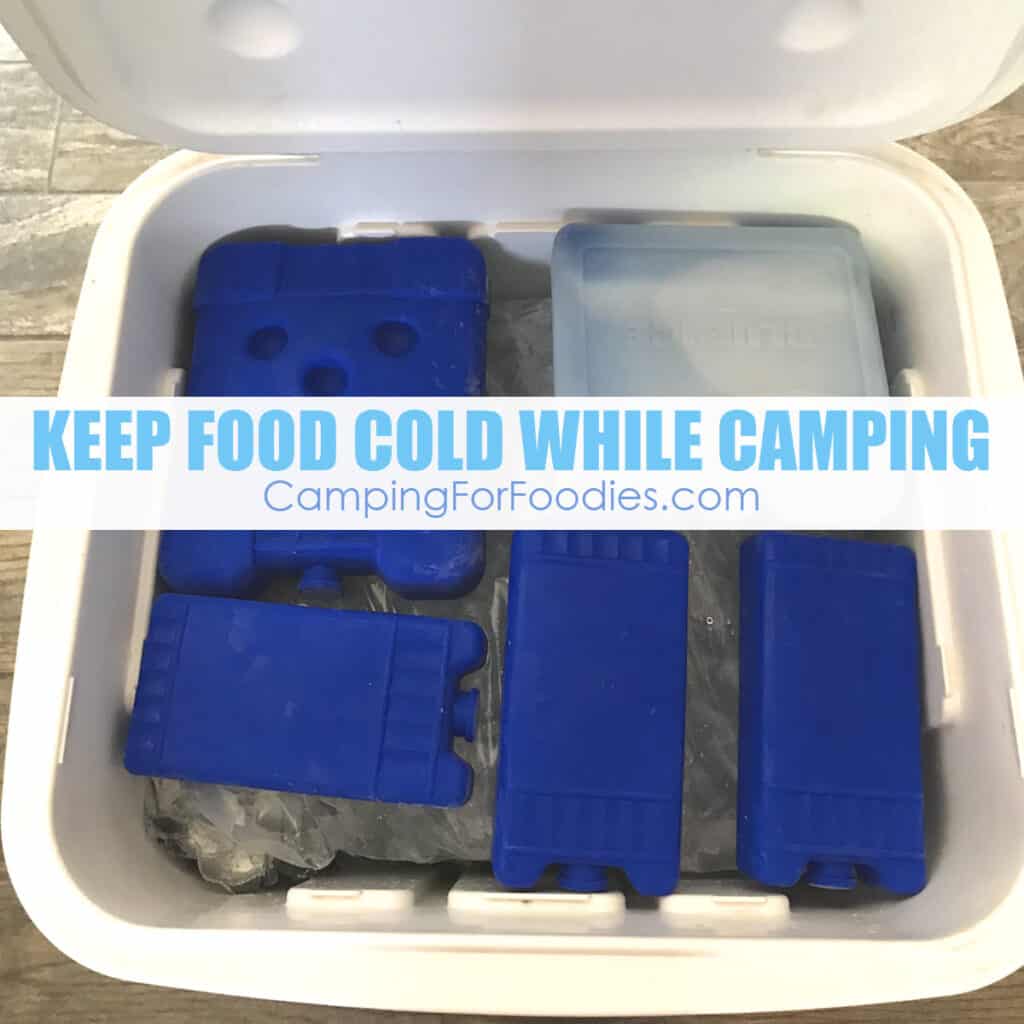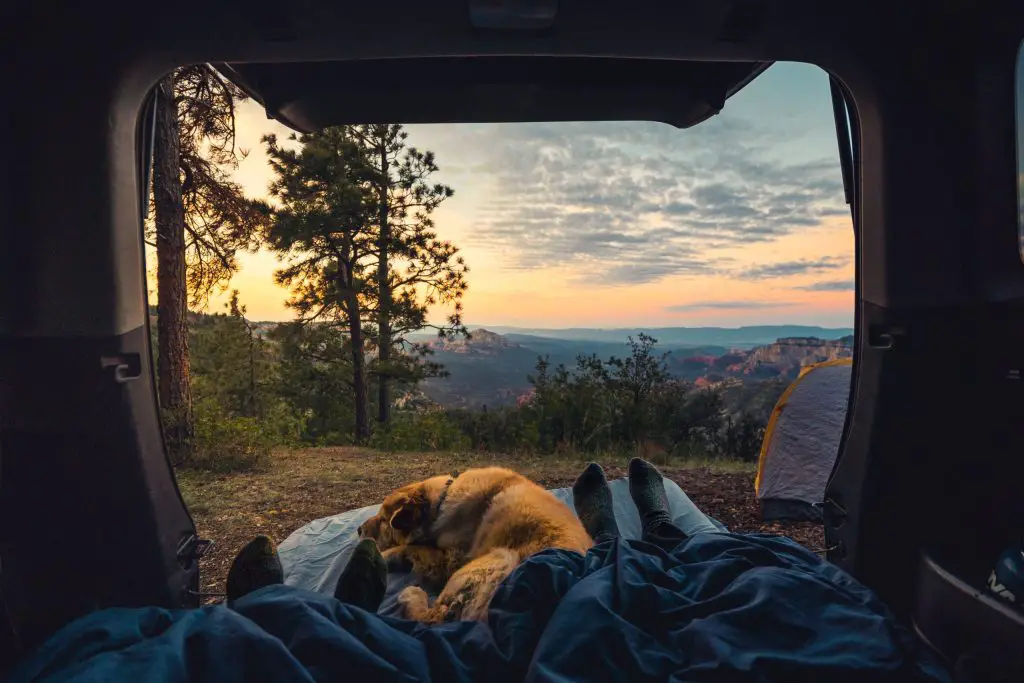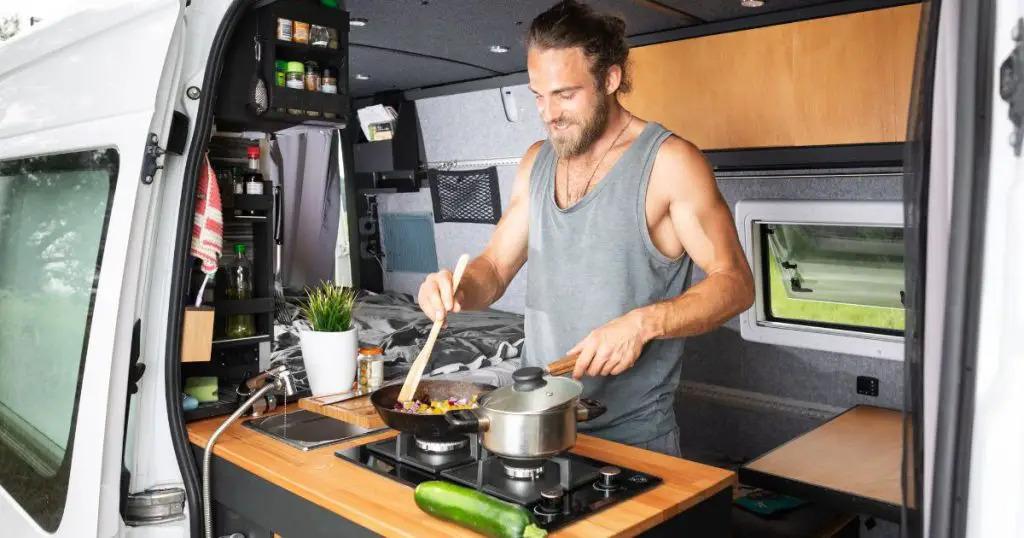For anyone planning to camp for a week or more, keeping food cold can seem like a daunting task. But there are some easy and effective methods you can use to ensure your food stays fresh and safe for the duration of your camping trip. In this article, we’ll cover the best ways to keep food cold while camping, whether you’re out in the wilderness or just car-camping in the backyard. Read on to learn how to properly keep food cold for a week of camping!
How to Keep Food Cold for a Week Camping?
- Pack a cooler with plenty of ice or ice packs.
- Organize your food and drinks into separate coolers.
- Store cold food items in airtight containers.
- Keep your coolers in the shade.
- Keep coolers away from direct heat sources.
- Use a digital food thermometer to monitor temperatures.
- Make sure to keep your food and drinks cold.
Remember to replace your ice every few days to keep your food cold for the whole week.

Keeping Food Cold for a Week of Camping
Camping can be a great way to relax and enjoy the outdoors, but it can also be a challenge to keep food cold while away from home. Fortunately, there are several strategies that can be employed to ensure food remains cold and safe during a camping trip. With the right combination of preparation and storage, it is possible to keep food cold for a week of camping.
Choose the Right Food and Supplies
The first step in keeping food cold while camping is to choose the right food and supplies. Perishable food items should be avoided as they will not stay fresh in the heat. Instead, opt for non-perishable items such as canned and dried foods, as well as unopened bottles of juice and water. Additionally, it’s important to bring along enough supplies to keep food cold. A cooler, ice packs, and a thermometer are all essential for keeping food cold.
Optimize the Cooler
Before a camping trip, it’s important to optimize the cooler. If a large cooler is available, it should be filled with a combination of ice and frozen items such as bottles of water and pre-frozen food. Additionally, the cooler should be placed in a shady area to help keep it cold. It’s also important to keep the lid closed as much as possible to help maintain the cold temperature.
Monitor the Temperature
Once the cooler is set up and the food is stored, it’s important to monitor the temperature. A thermometer should be placed inside the cooler to check the temperature. If the temperature rises above 40°F, it’s important to add more ice or frozen items to the cooler. Additionally, it’s important to discard any food that has been left in the cooler for more than two hours.
Replenish Supplies
Throughout the camping trip, it’s important to replenish supplies as needed. This includes adding more ice or frozen items to the cooler if the temperature rises. Additionally, it’s important to bring along extra ice packs in case they need to be replaced. Finally, make sure to keep an eye on the thermometer to ensure the food stays cold.
Use Alternative Storage
In addition to the cooler, there are several other strategies that can be employed to keep food cold during a camping trip. For example, food can be stored in a nearby stream or lake if there is one nearby. Alternatively, food can be buried in a shallow hole and covered with a tarp to keep it cool. Finally, food can be kept in an insulated bag or container if a cooler is not available.
Conclusion
Keeping food cold for a week of camping is possible with the right preparation and storage techniques. By choosing the right food and supplies, optimizing the cooler, monitoring the temperature, replenishing supplies, and using alternative storage techniques, it is possible to keep food cold and safe during a camping trip.
Frequently Asked Questions
How to Keep Food Cold for a Week Camping?
What Are the Best Ways to Keep Food Cold?
The best ways to keep food cold while camping are to use a combination of an ice-filled cooler and frozen gel packs. A cooler should be used to store perishable items such as meat and dairy products, while frozen gel packs can be placed directly in the food to keep it cold. It’s also important to keep the cooler in the shade and avoid opening it too often.
What Are the Benefits of Using a Cooler?
Coolers are ideal for keeping food cold while camping because they are portable and well insulated. Additionally, they come in different sizes to suit your storage needs. The insulation of a cooler helps to keep the cold air in, and prevent the warm air from entering. This adds extra time to the freshness of your food.
How Can I Make My Cooler More Efficient?
To make your cooler more efficient, it’s important to pre-chill it before packing it with food. This helps to keep the food colder for longer. You can pre-chill a cooler by placing ice or frozen gel packs directly into the cooler. Additionally, pre-freezing food items such as meat and dairy products before packing them into the cooler will also help to keep them colder for longer.
How Long Can I Expect My Food to Stay Cold?
The length of time that your food will stay cold depends on a number of factors, such as the size and insulation of the cooler, how often it is opened and closed, the temperature of the environment, and the type of food that is stored in it. Generally, food stored in a cooler with frozen gel packs should stay cold for up to a week.
What Are Some Tips for Keeping Food Cold?
When camping, there are several tips for keeping food cold:
• Pre-chill the cooler with ice or frozen gel packs before packing food.
• Place frozen gel packs or ice directly in the food to keep it cold.
• Place the cooler in the shade and avoid opening it too often.
• Be mindful of the temperature outside and pack accordingly.
• Ensure that all perishable items are stored separately from non-perishable items.
What Are Some Examples of Foods That Can Be Kept Cold?
Examples of foods that can be kept cold while camping include dairy products such as milk and cheese, meat products such as steak and chicken, fruits and vegetables, cold soups and salads, and condiments such as mayonnaise, ketchup and mustard. It’s important to ensure that all perishable items are stored separately from non-perishable items.
COLD ICE CHEST FOR A WEEK!
Camping is a great way to get away and enjoy nature, but you need to make sure your food stays safe and cold. By following the tips and tricks outlined in this article, you can ensure that your food stays cold for a full week of camping, letting you relax and enjoy your time away from home. With the right precautions, you can make sure your food stays safe, fresh, and delicious all week long.


